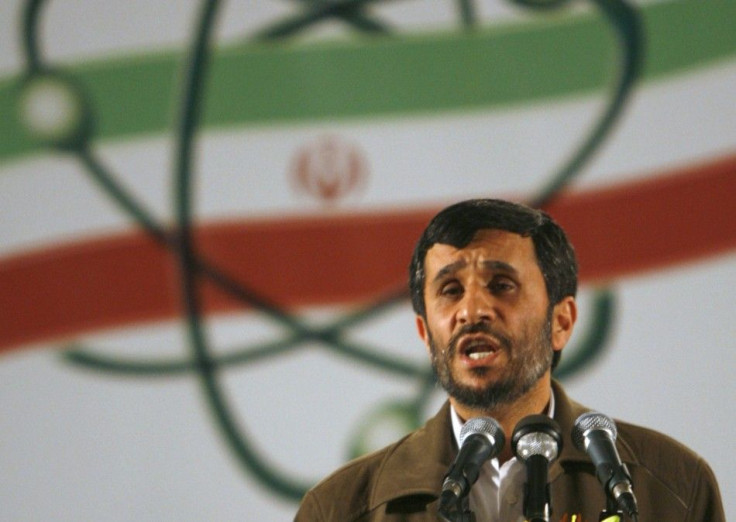Iran Nuclear Talks Off To 'Completely Different' Start

Months of saber rattling and diplomatic tension among Iran and the rest of the world have led to Saturday's nuclear talks, the first attempt at such negotiations since the last round fell apart 15 months ago. On Saturday, though, an unnamed diplomat told Reuters that the multilateral talks began with a completely different atmosphere than had occurred in previous meetings.
According the diplomat, Iranian nuclear negotiators did not demand the same preconditions that they had insisted upon in the previous meeting in early 2011.
He seems to have come with an objective to get into a process which is a serious process, which is about what we want to talk about, the envoy, who spoke on condition of anonymity, told Reuters. I would say it has been a useful morning's work.
He added that Iran has indicated it is ready to seriously discuss its nuclear program with the other nations, that a second meeting is now likely, and that the nation has shown openness on all issues.
This contrasts the previous multilateral meeting, when Iran refused to discuss its nuclear program at all, which the West thinks is for military purposes, but which Iran insists is for civilian energy use only.
Istanbul is serving as the meeting place for what U.S. President Barack Obama recently called the last chance for a peaceful resolution to the current nuclear imbroglio. The so-called P-5 Plus 1 group -- the United States, Britain, China, France, and Russia, plus Germany -- are meeting with Iranian representatives to try to persuade Tehran to abandon its nascent nuclear program.
Obama's demands on Iran are specific. He wants Iran to close the underground uranium-enrichment facility at Fordow and export the uranium that has been enriched above the levels needed for energy production, the BBC reported.
Iran has long insisted that it is working only to develop a civilian nuclear program, eventually for research and energy. However, based on a report from the International Atomic Energy Agency last November, the United States, Israel and a number of other governments believe that Iran is seeking to build nuclear weapons.
Since the report was issued, the U.S. and the EU have imposed a slate of sanctions against Tehran in an effort to restart the nuclear negotiations, while Israel has threatened to pre-emptively strike Iran's reactors.
Despite the symbolic significance of this weekend's meeting, the U.S. does not have high hopes for the talks, and Washington would be satisfied if all that was accomplished was a promise of a second round.
We don't expect to resolve all of our difficulties with Iran in one meeting, a senior U.S. official told the Wall Street Journal. But what we'd like to do is have a process in place that can lead to a resolution of the international community's concerns.
We hope that this first round will produce a conducive environment for concrete results through a sustained process, a representative of EU foreign-policy chief Catherine Ashton told Reuters.
Nonetheless, politicians in the U.S., along with Israel and Saudi Arabia, are cautioning the Obama administration about the consequences of a slow negotiation process, fearing that it could give Iran time to covertly build a weapon.
Instead of forfeiting our position of strength, the administration should increase pressure on Iran, U.S. Rep. Ileana Ros-Lehtinen, R-Fla., chairwoman of the House Foreign Relations Committee, said in a statement. By hoping that negotiations may produce some magic deal, the administration is refusing to read the clear writing on the wall.
Tehran also has low expectations for the meeting. On Friday, the state-run Press TV quoted a source close to the Iranian delegation who said that recent U.S. and EU remarks have discouraged Saeed Jalili and the rest of the delegation headed to Turkey.
© Copyright IBTimes 2024. All rights reserved.





















